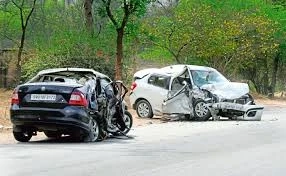Introduction:
In the bustling metropolis of Mumbai, where the constant hum of traffic is an integral part of daily life, motor accidents are unfortunately all too common. In the event of a mishap, individuals involved often find themselves grappling with physical injuries, emotional trauma, and financial burdens. It is during such challenging times that the Motor Accident Claims Tribunal (MACT) plays a crucial role in providing a legal avenue for seeking compensation. This article aims to shed light on the workings of the Motor Accident Claims Tribunal in Mumbai, outlining its significance, procedures, and the rights of those seeking justice.
Understanding the Motor Accident Claims Tribunal:
The Motor Accident Claims Tribunal, commonly known as MACT, is a quasi-judicial body set up to adjudicate claims arising out of motor accidents. In Mumbai, these tribunals operate under the Motor Vehicles Act, 1988, and their primary objective is to provide swift and fair compensation to victims of motor accidents or their legal heirs.
Jurisdiction of MACT in Mumbai:
Mumbai, being a vast and densely populated city, is divided into multiple jurisdictions. MACTs in Mumbai are also divided accordingly to cater to the diverse needs of its citizens. Depending on the location of the accident, the claimant needs to file their case in the appropriate MACT. This ensures that cases are heard and resolved efficiently, considering the geographical spread of the city.
Initiating a Claim:
When a motor accident occurs in Mumbai, the injured party or their legal representatives need to file a claim before the respective MACT. The claim should include details such as the nature of the accident, the injuries sustained, and the compensation sought. It is crucial to file the claim within the stipulated time frame, usually six months from the date of the accident, to avoid any complications.
Evidence Gathering and Documentation:
The success of a claim largely depends on the evidence presented before the tribunal. Claimants are advised to collect and submit all relevant documents, such as the First Information Report (FIR), medical reports, witness statements, and any other supporting evidence. This meticulous documentation helps in establishing the facts of the case and aids the tribunal in making an informed decision.
Legal Representation:
While it is not mandatory to hire a lawyer to represent a claimant in the Motor Accident Claims Tribunal, legal assistance can significantly enhance the chances of a successful claim. Experienced lawyers familiar with the intricacies of motor accident cases can navigate the legal process efficiently, ensuring that all necessary documents are in order and presenting a strong case before the tribunal.
Role of Insurance Companies:
In many motor accident cases, insurance companies are involved as the primary compensators. The claimant or their legal representatives must notify the relevant insurance company about the accident and the ensuing claim. Insurance companies are then responsible for providing the necessary compensation as per the terms of the policy. However, if disputes arise regarding the quantum of compensation, the matter may be taken to the Motor Accident Claims Tribunal for resolution.
Determining Compensation:
The Motor Accident Claims Tribunal in Mumbai determines the compensation amount based on various factors, including the nature and extent of injuries, medical expenses, loss of income, and the overall impact on the victim's life. The tribunal aims to provide just and equitable compensation, taking into account both economic and non-economic losses suffered by the claimant.
Appeals and Review:
If either party is dissatisfied with the decision of the Motor Accident Claims Tribunal, they have the right to file an appeal before the higher courts. The process involves presenting the case before the appropriate appellate authority and seeking a review of the tribunal's decision. This ensures that parties have recourse to justice if they believe there have been errors in the legal proceedings or if new evidence comes to light.
Challenges Faced by MACT in Mumbai:
While the Motor Accident Claims Tribunal plays a crucial role in delivering justice, it is not without its challenges. The sheer volume of motor accidents in Mumbai poses a significant burden on the tribunals, leading to delays in case disposal. Efforts are being made to streamline the process and address these challenges, but it remains an ongoing endeavor.
Awareness and Education:
One key aspect that can contribute to the smoother functioning of the Motor Accident Claims Tribunal is increased awareness among the public. Many individuals may not be fully aware of their rights or the procedures involved in filing a claim. Educational campaigns and outreach programs can help bridge this gap, ensuring that those affected by motor accidents are informed and empowered to seek rightful compensation.
Conclusion:
The Motor Accident Claims Tribunal in Mumbai serves as a vital institution in the realm of road accident compensation. In a city where the pace of life is fast and accidents are a harsh reality, understanding the workings of MACT becomes essential for those seeking justice. From the initiation of a claim to the determination of compensation, the tribunal plays a pivotal role in providing relief to victims and their families. As Mumbai continues to evolve, efforts to streamline and improve the efficiency of the Motor Accident Claims Tribunal will contribute to a more just and responsive legal system for all.
Read More... MACT Cases



